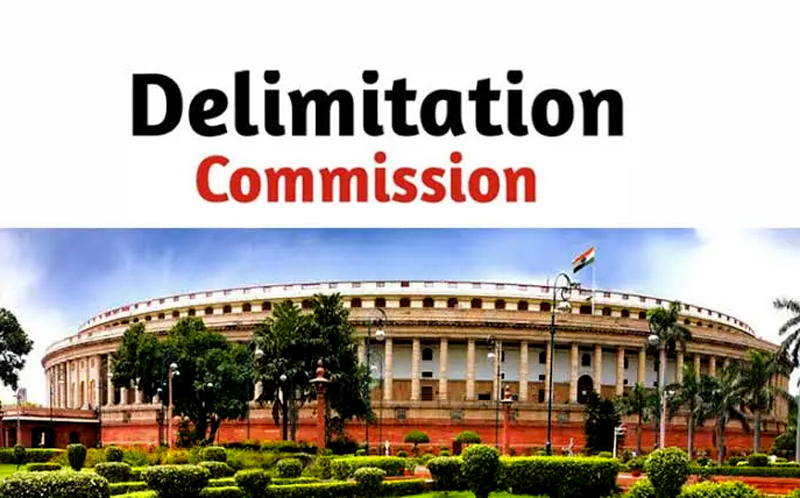Panel’s term may require extension of couple of months
Other parties, groups can file claims after report is put in public domain
Sanjeev Pargal
JAMMU, Feb 9: Both BJP and National Conference will submit set of objections to the Delimitation Commission on or before February 14 on its draft report submitted early this month to five Associate Members while rest of the political parties, organizations and people will have to wait for filing objections or giving suggestions to the Panel till the report is put in public domain.
“Presently, only BJP and NC can file suggestions/objections to draft report of the Delimitation Commission as these are the only two political parties which have Associate Members in the Panel. Though a number of other political parties and organizations have also objected to some parts of the report, they can’t file objections till the report is put in public domain,” official sources told the Excelsior.
The Associate Members include Union Minister of State in the Prime Minister’s Office (PMO) Dr Jitendra Singh and Jugal Kishore Sharma, both BJP MPs from Jammu division and Dr Farooq Abdullah, Mohammad Akbar Lone and Hasnain Masoodi, all three MPs of National Conference from Kashmir valley.
Insiders in the BJP and National Conference confirmed that both the political parties are working on filing detailed sets of objections to draft report circulated among the Associate Members by the Delimitation Commission.
They are likely to file the objections on or before February 14.
The BJP has objections to abolition of certain Assembly seats and their merger with other constituencies, reservation of some segments and change of boundaries at other places. However, the BJP objections will be drafted by a committee and submitted to the two Associate Members for further submission to the Panel.
The National Conference is also drafting objections Constituency wise and its three Associate Members are expected to meet the Commission to submit them.
“The Commission will discuss suggestions/objections of the Associate Members in its meeting and take decision on them before putting draft report in public domain,” sources said, adding that only when report is put in public domain that the political parties, who have no Associate Members in the Panel, other organizations and individuals can react and file objections to the report.
Sources said entire exercise could take nearly three months and, therefore, the Law Ministry will have to extend term of the Delimitation Commission which is expiring on March 6.
Headed by Justice (Retired) Ranjana Prakash Desai, the Delimitation Commission was set up on March 6, 2020. It’s term was extended by an year on March 6, 2021 as it couldn’t do much work because of COVID and other factors. Another extension, albeit of few months, has become imminent, sources pointed out.
Assembly elections in Jammu and Kashmir can be held only after delimitation of Assembly constituencies is completed.
Once the delimitation exercise is completed, the number of Assembly seats in Jammu and Kashmir will go up from 83 to 90.
Twenty-four seats of the Assembly continue to remain vacant as they fall under Pakistan-occupied Jammu Kashmir (PoJK).
While splitting Jammu and Kashmir into two Union Territories through the Reorganization Act, the Union Home Ministry had increased Assembly seats of Jammu and Kashmir by seven taking total seats to 114—24 of which are reserved for PoJK while election will be held for 90 seats.
Erstwhile State of Jammu and Kashmir had 111 seats including 24 reserved for PoJK while elections were held for 87 seats. With creation of Ladakh as Union Territory, four seats of the region were reduced and the Assembly was left with 83 seats. However, with increase of seven seats, J&K UT will have an Assembly of 90 seats. Two women MLAs will be nominated to the House, which was the position earlier also.
In the previous Assembly, Kashmir had 46 seats, Jammu 37 and Ladakh four.
Delimitation of the Assembly constituencies was last held in 1994-95 during the President’s Rule when seats of the erstwhile State Assembly were raised from 76 to 87. Jammu region’s seats were increased from 32 to 37, Kashmir’s from 42 to 46 and Ladakh’s two to four. However, the delimitation was freezed in 2002 by the then National Conference Government headed by Dr Farooq Abdullah in line with the decision taken by then Central Government led by Atal Bihari Vajpayee.


